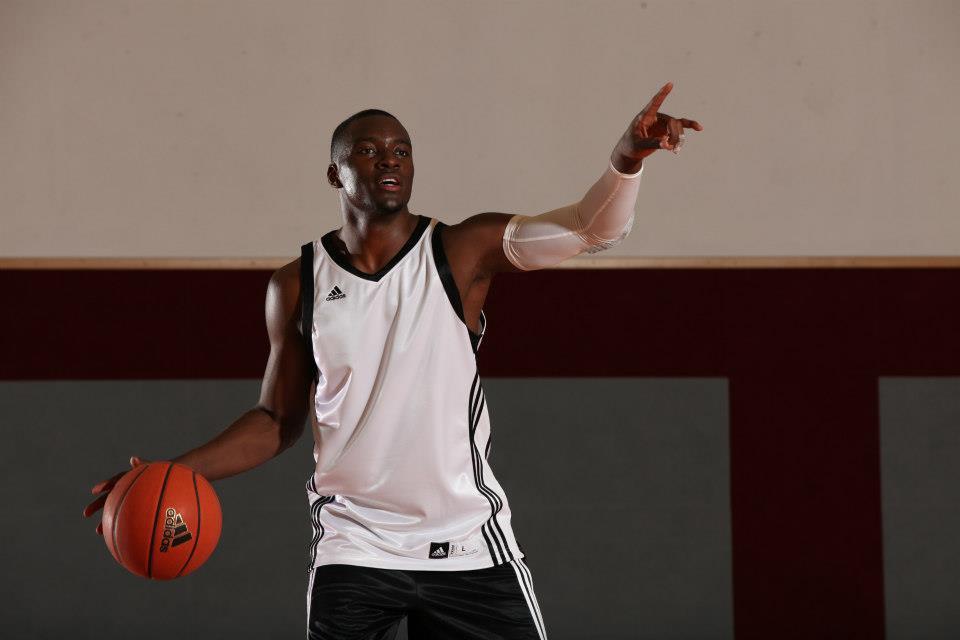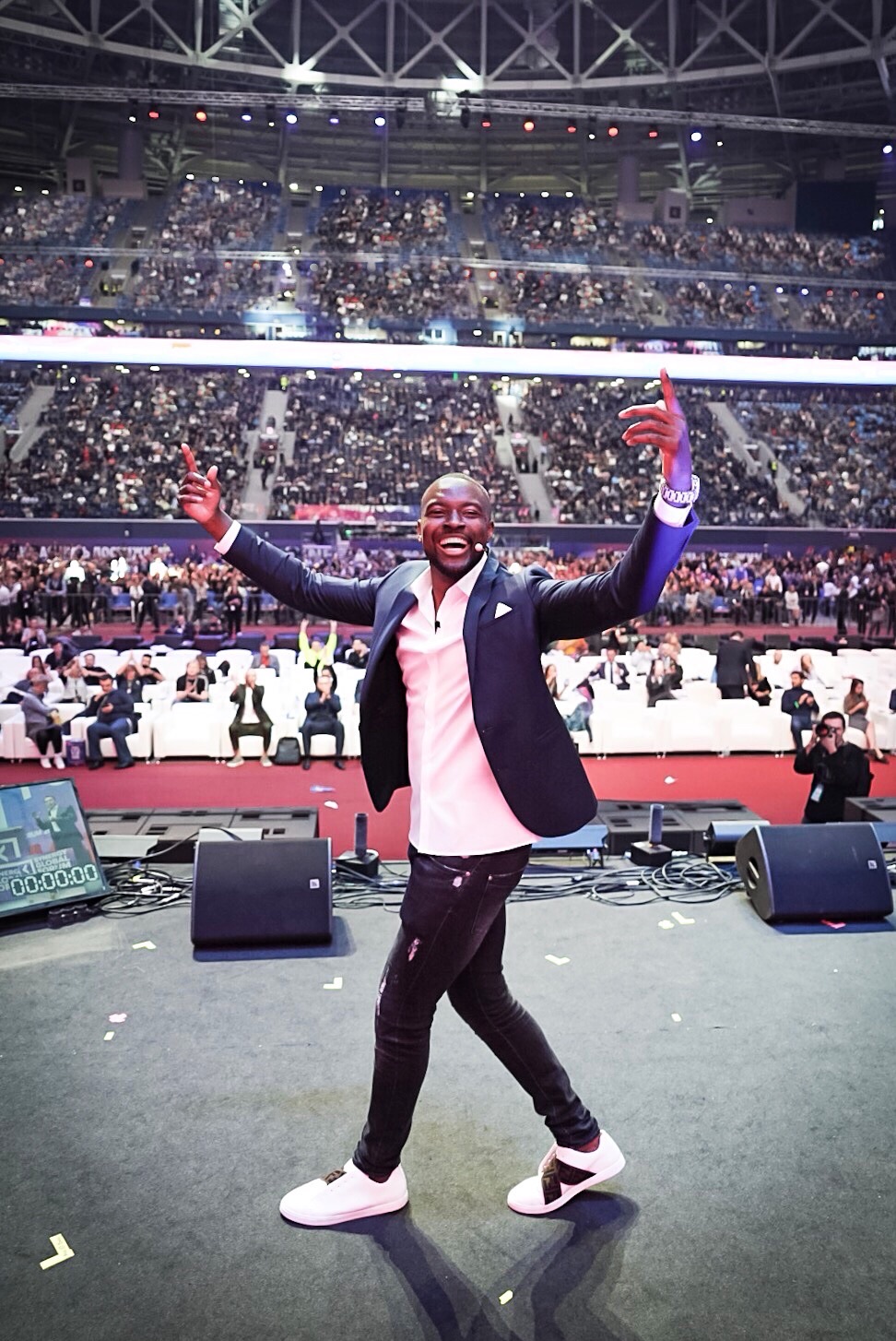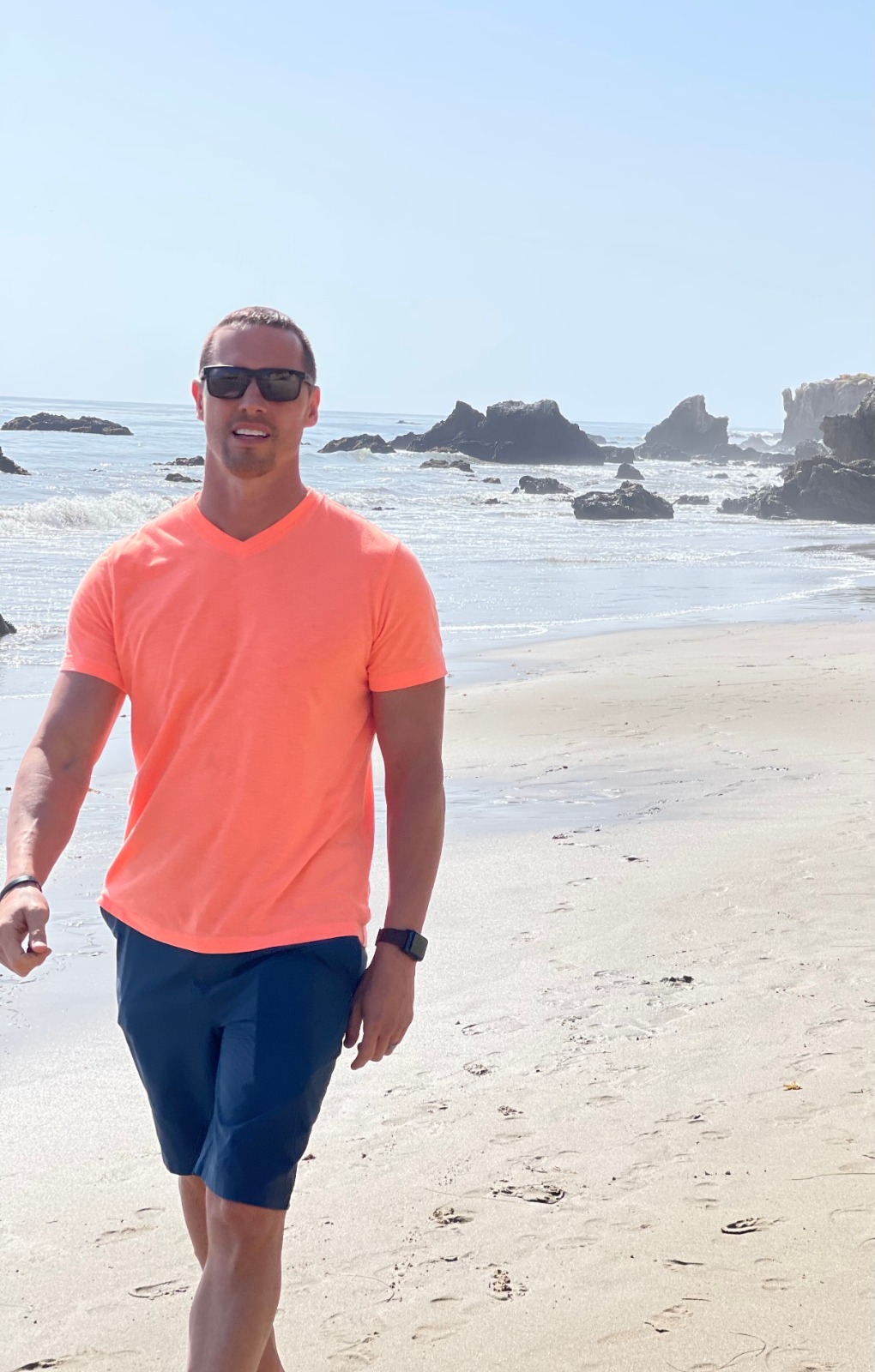We’ve all seen public figures who have taken alternative career paths. These people spent years reaching the pinnacle of their career only to expand, shift or move entirely into a new area of expertise.
Take Chris Evans, for example. After a decade of playing the iconic action hero, Captain America, the actor is pursuing his political interests through his website, A Starting Point. Victoria Beckham—former member of the girl group, The Spice Girls—has made a name for herself in the fashion industry. Ashton Kutcher has built a $250 million portfolio by investing in start-ups like Uber and Airbnb.
What about people who aren’t Hollywood A-listers? What about artists, athletes, and public figures who have built a career for themselves only to be forced into retirement?
Your Career Has Ended, Now What?
Thaddaeus Koroma is a prime example of someone whose career ended and then had to find what was next for himself.
Thaddaeus Koroma was once a promising basketball player whose career was prematurely terminated by a series of sports injuries. But this wasn’t the end for him, nor should it be the end for other athletes who face similar barriers.
“A sports injury ended my professional career, but it became the foundation of my success today,” Koroma muses.
Koroma went on to co-found Limit Breakers with his cousin and partner, Patrick Sesay, helping celebrity clients build their own businesses and create sustainable income into retirement. “Our clients are world-famous athletes, music artists, actors, and influencers. We focus on their future, by building assets, creating deals, and connecting them with different businesses. A lot of times our celebrity clients will team up as investors or partners to create strategic alliances.” Koroma explains.
Limit Breakers’ clients get ahead of the curve, making smart financial decisions early. Those celebrities work with their own management team, in conjunction with Limit Breakers, to turn big paychecks into incredible wealth for their future. Most former athletes, actors, and entertainers have not planned for when it’s over. This is what happened to Koroma. He knows from his own experience and is driven to prevent the same thing from happening to others.
Taking a Leap of Faith
Often, when someone’s career in the spotlight has ended, they are able to transition into a new career, but do so by relying on their field of expertise. For example, if someone is a former actor, they can use their knowledge of the industry to start a talent agency. Former soccer player Mia Hamm owns the LAFC soccer club and established the Mia Hamm Foundation to raise funds for bone marrow transplants after her professional career ended. Hamm’s foundation also works towards creating more opportunities for female athletes within the sports industry. But what if there is a lot more you can do that may not seem in your “line of work”?
Of course, there are those who have made huge leaps from one career to another; some even to politics. Skandar Keynes (the actor who played Edmund in ‘The Chronicles of Narnia’) is no longer in the entertainment industry. Instead, he has an illustrious career as a political adviser in England. Kal Penn (from the “Harold & Kumar” film series) famously took a break from his career as a successful actor in 2009 to work alongside President Obama at the White House.
Amongst the Hollywood elite, there is a spate of actors diversifying into areas that are far from their wheelhouse. We’ve all seen those humorous ads put out by Ryan Reynolds, actor and co-owner of Mint Mobile and Aviation Gin. On his decision to branch out, Reynolds said, “While every other tech titan is off chasing rockets, I’ll corner the budget-friendly wireless sector. Like most people, I only use rockets ten to twelve times a year, but I use my mobile service every day.”
Shifting Your Mindset: The Key to Longevity
When asked what the quintessential attribute is for long-term success, Koroma personally believes: “The ability to shift your mindset to focus on new goals and take action when challenges arise… admitting failure can be hard but it makes you a more skilled strategist and, ultimately, more powerful if you can use it to your advantage. If you stay open, you will wind up with endless opportunities around you.”
Koroma’s current clients would be surprised to hear that he wasn’t always an avid fan of the business world.“I didn’t care about business, I thought I just needed to make enough money so I could heal and return to basketball,” he said with a laugh.
When Koroma was initially told that he would not be able to compete at a high level, he didn’t stop playing. He only started learning about business because he wanted to raise the necessary finances to keep training despite what the doctors said.
He wouldn’t believe it was over and what came next was a series of additional injuries until ultimately he couldn’t continue. He says it was a huge lesson and often regrets his inability to let go of basketball. He admits: “My pride was short-sighted and I am lucky to be in good health today. I wouldn’t listen to anyone… I pushed through the pain and practiced harder and couldn’t see beyond a future in basketball for quite some time.”
In 2009, Koroma’s hip was beyond repair and he accepted it was over. Shortly thereafter, he had a revelation that what he was starting to love about entrepreneurship was what he loved about sports without having to abuse his body. He started to pour all his energy and the same single-minded approach that had brought him acclaim as an athlete, into business and investing.
“Look at the field. It’s a lot of politics and understanding people, it is actually very similar. The opponent is not the enemy; you learn from competition and get stronger.” His company, Limitbreakers, has given him everything he wanted in athletics.
AAthlete and actor, Dwayne ‘The Rock’ Johnson, has one of the most inspirational stories about shifting his mindset after his failure to succeed in football. Johnson started out with a promising career playing football at the University of Miami. He is reported to have entered the 1995 NFL draft, but went undrafted. Later, he played with the Calgary Stampeders but was dropped from the team after his first season. Of course, had Johnson stopped at this point in his life, we would never have known him as the successful figure he is today. The point is, he took all of his disappointments, along with his obvious talent, and shifted his focus. In his case, he chose to follow after his father, as a wrestler, and later branched into acting and entertainment.
Viewing life as a series of opportunities, is a vital component in remaining optimistic in the face of career setbacks. Statistically-speaking, all of us will have at least one major hitch in our working life. The question is: what new possibilities exist beyond our current scope of thinking and how hard are we willing to work to get there?
Due Diligence and Hard Work: The Winning Combo

Current artists aren’t the only ones using their star power to launch new product lines. Some long since retired legends have taken the time to study and learn about business, so they can invest in new markets and grow wealth.
When asked about his current investments, former NBA player Shaquille O’Neal replied, “My formula is: if you do your due diligence and you see other successful people put into it, it’s probably going to work and make sense.”
It goes without saying that all of this takes a lot of work. From research and planning to the daily effort involved in actually running a business — it all takes blood, sweat, and tears.
As Ashton Kutcher once said, “I believe that opportunity looks a lot like hard work.”
“The harder I work, the luckier I get,” is something Koroma says often. Great opportunities come to those who hunt for them. Today, Koroma spends most of his time learning about money markets, new technologies, emerging businesses, and building relationships to help public figures and celebrities pursue their entrepreneurial dreams while in the spotlight to secure a stronger financial future. Asking him if he ever thought this would be his line of work, he laughs and says: “The first limitations I had to break were my own.”




